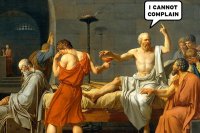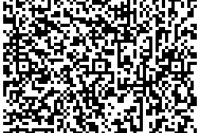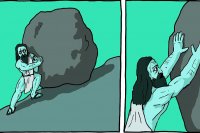“Sit in a room and read—and read and read. And read the right books by the right people. Your mind is brought onto that level, and you have a nice, mild, slow-burning rapture all the time.”
― Joseph Campbell
The indelible Joseph Campbell may have been talking about books in the above quote, but I imagine that if he’d lived long enough to see the web in its current form, he would also be damn enthusiastic about reading the “right [stuff] by the right people” on the Internet. (If you do want book suggestions, look no further than the RTM Library.)
A while back, I shared a list of 22 outstanding essays I’d read online, and humans responded quite favorably. And that was fine and dandy because I’m all about propagating meaningful online content—i.e. content that is morally challenging, educational, mind-stretching, insightful in unexpected ways, and/or humanistically/existentially illuminating.
I see the Internet as this profoundly powerful tool with the potential to help us become more compassionate, study virtually any subject, gain a more nuanced understanding of our lives and the world we’ve created, and other such good stuff like that. But in practice, most of us seem to use the Internet to watch fail compilations and tell our Facebook friends about our latest frustrations.
Which is really whatever. I’m not some kind of Internet fascist. Things will be as things will be. But nonetheless, I just have this weird idea that Earth might be a cooler place to live if each of us asked more questions instead of assuming we have the right answers and just generally tried to be kinder and more altruistic. And I think the Internet, if used in a certain way, can totally help us to move in that direction.
That’s why I created and continue to create this website. It’s also why I share daily aphorisms, passages of literature, book recommendations, and links to long-form writing on Twitter and Facebook. Social media game mad nourishing of heart and intellect. Yeah, bro.
Anyway, now that you’ve heard my unsolicited mission statement, here are 20 dazzling pieces of writing that I discovered whilst dredging the caverns of the Internet-ocean.

Against the Wind by Atelier ŽITNIK. Photo Credit: Wiki Commons
20 Things
1. SSC Gives a Graduation Speech by Scott Alexander / SLATE STAR CODEX
Brief Description: This astonishing essay takes the form of a faux graduation speech in which the speaker poses the question, “Is education worth it?” What follows is a cortex-withering analysis of our mass education systems that will make you question pretty much everything.
2. Indifference is a power by Lary Wallace / AEON
Brief Description: This essay provides a refreshingly careful explanation of Stoicism, an oft-misunderstood school of Philosophy, and argues that each of us might benefit from integrating Stoic principles into our worldview.
3. Ritual and the Consciousness Monoculture by Sarah Perry / RIBBON FARM
Brief Description: A profound piece of writing exploring the idea that our epoch is dominated by a particular variety of consciousness. The author considers our experience of time, identity, and the self to elucidate certain peculiarities of 21st-century consciousness.
4. The Strange & Curious Tale of the Last True Hermit by Michael Finkel / GQ
Brief Description: An unbelievable story of a man who, for nearly thirty years, lived secretly in the woods of Central Maine. Apart from being a powerful narrative account, the story of this man’s life contrasts so starkly with the experience of the average person living today that it all but forces us to see our social order from a new perspective.
5. Beware of cupcake fascism by Tom Whyman / The Guardian
Brief Description: A provocative piece arguing that the cupcake is the perfect symbol for a new form of “fascism”—that is, a homogenizing force which consists of infantilized middle-class values and imagery being inserted into the general cultural sphere with the effect of obfuscating or trivializing real social issues.
6. Good and Bad Procrastination by Paul Graham
Brief Description: This classic essay from Paul Graham opens with the counterintuitive claim that the most impressive people the author knows are all horrible procrastinators. It then proceeds to consider why this is the case and how some forms of procrastination might actually help one to optimize for the attainment of higher aspirations.
7. Brief Interviews With Hideous Men #6 by David Foster Wallace / THE PARIS REVIEW
Brief Description: Probably one of my favorite pieces of fiction of all time, this story from David Foster Wallace takes the form of an interview with a man who has experienced a dramatic shift in values and perspective after an encounter with a free-spirited woman.
8. The Drowning Child and the Expanding Circle by Peter Singer / UTILITARIAN.NET
Brief Description: In this concise essay, Peter Singer suggests that in a globalized world, our circle of human compassion should expand to include all human and non-human animals on Earth. Furthermore, he argues, transitioning from a purely self-interested life to an ethical one can provide a significant sense of meaning and purpose that many of us seem to be lacking in our egocentric societies.
9. The Danger in Demonizing Male Sexuality by Alyssa Royse / GOOD MEN PROJECT
Brief Description: This poignant piece discusses the damage caused by the media-perpetuated stereotype of heterosexual men as predators, asserting that the “vast majority” of men “simply are not.” It also provides a list of insights on how men can work to shift the collective impression of male sexuality in a more positive direction.
10. Ad nauseam by Adam Corner / AEON
Brief Description: This piece might be somewhat unsettling if you consider yourself to have transcended, via the perfect combination of smarts and hip detachment, the influence of advertisements. The author explains how advertisers capitalize on cynicism and anti-consumerist sentiment by creating self-aware, self-critical ad campaigns that appeal to a jaded generation.
11. Everyone I know is brokenhearted. by Joshua Ellis / ZENARCHERY
Brief Description: This piece is something of a manifesto of disillusionment and frustration for any and all people who are concerned about the state of the world, and reading it was definitely a cathartic experience for me. I do, however, think the author falls prey to the fallacy of mistaking the fact that we’re more aware of the bad stuff going on worldwide nowadays for evidence that we’re all actually worse off than ever before. Many studies suggest the opposite.
12. I Can Tolerate Anything Except the Outgroup by Scott Alexander / SLATE STAR CODEX
Brief Description: Another absolute tour de force from Scott Alexander that examines the dynamics of ingroup and outgroup formation in human social organization. The piece totally flips intuition on its head, suggesting that one’s truest outgroup—the group toward which one directs the most animosity—is likely to be, in many regards, indistinguishable from one’s ingroup.
13. Why are Psychedelics Illegal? by Tao Lin / VICE
Brief Description: This article was one in a fantastic twelve-part column on Terence McKenna which Tao Lin wrote for Vice last year. In this piece, Lin approaches the question of why psychedelics are illegal from the unexpected-yet-fruitful macro-perspective of an age-old struggle between dominator and partnership forms of human culture/society—a topic I’ve addressed as well.
14. The self is moral by Nina Strohminger / AEON
Brief Description: An excellent essay that invokes several interesting studies to argue that the most integral aspect of personal identity—i.e. the aspect wherein we humans tend to identify the true essence of a person—is moral character.
15. George Saunders’ Advice to Graduates by George Saunders / NEW YORK TIMES
Brief Description: This transcript of a graduation speech delivered by author George Saunders to the Syracuse University class of 2013 is, I daresay, probably one of the most concise, potent statements of wisdom that any human has ever scribed.
16. Avoiding Factory Farms: An Eater’s Guide by Nicolette Hahn Niman / HUFFINGTON POST
Brief Description: Eating fewer animal products, specifically animal products from factory farms, is one of the easiest ways for any of us to reduce suffering on Earth. One need not become a full-fledged vegan overnight, either. Gradually adopting a flexitarian diet has worked well for me. If everyone did this, animal suffering would be dramatically reduced. Anyway, this is the best, most comprehensive guide I’ve found to eating less factory-farmed food.
17. Universal Love, Said the Cactus Person by Scott Alexander / SLATE STAR CODEX
Brief Description: I’m a huge fan of Scott’s writing, okay? This piece is a work of short fiction in the form of a hilarious dialogue between someone on DMT and some strange entities the person has encountered. Among other things, the story grapples with a paradox of “enlightenment”—that those who supposedly attain it aren’t really able to explain what it is or how one might attain it but seem to be reduced to speaking in riddles or ostensibly gooey platitudes.
18. Young Minds in Critical Condition by Michael S. Roth / NEW YORK TIMES
Brief Description: An excellent short piece that argues that too heavy an emphasis on critical thinking can actually be detrimental to education. The author suggests that if students become overly critical, habitually focusing only on the weak points of a piece of literature, they may lose the ability to truly participate in the work, to become immersed, and to open themselves to new possibilities.
19. America as Afterimage in True Detective by Marian St. Laurent / SENSITIVE SKIN
Brief Description: Perhaps you, like me, feel that the first season of HBO’s True Detective was the best season of television you’ve ever seen. If so, this semiotic analysis is the most insightful piece of writing I’ve found regarding the show. It offers an illuminating close reading of the show’s heavy symbolism, arguing, among other things, that most everything about the season is a covert metaphor for shifting American values.
20. On Being an Illegible Person by Venkatesh Rao / RIBBON FARM
Brief Description: This idiosyncratic piece from one of my favorite bloggers is a meditation on what it’s like to be a nomad and an “illegible” person—i.e. a person whose identity evades compartmentalization within standard social scripts.
If you don’t use Pocket, you should. It’s a great app that I use all the time to quickly and easily save great essays like these in one place for future reading. Integrates with all devices.
If you liked these, you might want to follow me on Facebook and/or Twitter, where I regularly share long-form reading material.
About Jordan Bates
Jordan Bates is a Lover of God, healer, mentor of leaders, writer, and music maker. The best way to keep up with his work is to join nearly 7,000 people who read his Substack newsletter.





Thanks for this Jordan. I like SSC too, Scott’s exploration of topic is exemplary.
you’re welcome, joseph. and definitely, scott rules.